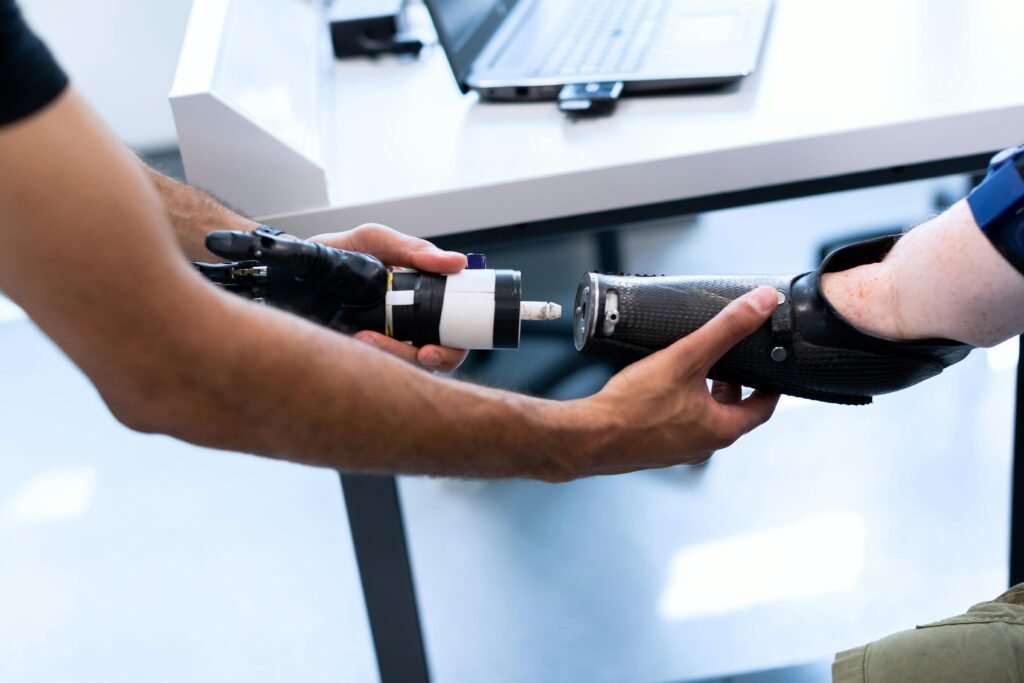In a groundbreaking advancement of medicine and technology, the birth of a healthy baby has taken place as a result of a fully AI-assisted IVF procedure – changing the prospect of fertility and human reproduction.
Where It Happened: Guadalajara, Mexico
The transformational birth took place at Hope Fertility Clinic located in Guadalajara, Mexico, A well-known fertility clinic that is famous for its use of modern technologies in reproductive medicine. The procedure was conducted at the clinic with partnership from Conceivable Life Sciences, a biotechnology startup located in New York City, USA.
This marks a first not only for the region, but the world. In a more profound context, this is another indication of AI not only taking functions in the laboratory and diagnostics, but reaching systems where human life is actually constructed.
How AI Took Over the IVF Process
The baby was conceived by means of Intracytoplasmic Sperm Injection (ICSI) known as a form of assisted reproduction for which embryologists would typically conduct the manual procedure. In this case, however, all steps of the procedure were completed by robotic systems with AI control including:
- AI analysis of sperm motility, morphology, and viability for the purposes of selection.
- Machine performed laser immobilization of the sperm which precedes injection.
- Robots performing micromanipulation of eggs and sperm where steadiness beyond human limits is required.
From the collected eggs of a forty-year-old woman – who had prior unsuccessful attempts at IVF – four embryos were successfully developed, out of which one healthy male infant was delivered, thereby accomplishing a remarkable success rate for a procedure which had never been attempted before.
Future Implications for Fertility
This achievement is not only historic, but is also milestone event in reproductive technology and here’s why:
Wider Reaching
Subordinate regions may soon offer exceptional care due to the automation of embryology tasks utilizing AI. There would no longer be a requirement for elite teams of embryologists.
Consistency and Accuracy
Another challenge which will be alleviated due to AI technology is human error. Over time, with AI implementation into IVF procedures, the uniformity of results throughout many labs will increase.
Cost Effectiveness
Although advanced technology might be expensive during its inception, adoption at a later stage will see a drop in the cost of IVF procedures, increasing accessibility for families seeking fertility care.
Renewed Optimism for Challenging Cases
With the age of twenty-five, women start considering themselves in advanced years and for couples regularly facing repeated IVF cycles, precision-based fertilization technology will help them regain their optimism.
What follows after the birth of the first AI-IVF baby?
The birth itself is only a glimpse of a transformational shift in reproductive healthcare. Here’s what is likely to occur next:
- Worldwide Test And Adoption: Clinics from the U.S, Europe, and Asia are also likely to join in and adopt pilot programs that make use of AI-optimized fertilization systems.
- AI-Optimized Embryo Evaluation: Cutting-edge STEM technologies will enable AI to automate evaluation of embryo viability, genetic stability, and now even predict success scores of implantation.
- Embryo Culturing Machines: An entire growth stage of embryos starting from fertilization down to blastocysts may be performed in specific AI controlled environments.
- Artificial Wombs? Scientists are already working on biobags and artificial womb prototypes. Even carrying a baby for a decade might be partially an AI help.
- Increased ethical scrutiny: While some tech is more mature, there seems to be more talk of bioethics, regulation, and the limits of reproductive AI set to increase.
Justice For Questions
While the possibility of it is medically brilliant, the worry remains surrounding virtue and socially:
- Should there be decisions made by AI on the reproduction of human beings?
- How do you maintain fairness in such advanced fertility no matter who comes?
- What rules can be set so there are no consequences or abuse of the situation?
To enable proper and secure use of AI in conception care, legal authorities as well as international health associations must prepare.
Final Remarks from Aixcircle
At Aixcircle, we advocate for the exploration of AI capabilities, considering the unprecedented possibilities it offers for humanity. We strive hard to ensure our innovations align with the needs of society. The world’s first AI-IVF baby is an astounding achievement that epitomizes what is possible when deep AI capabilities are leveraged. It is more than IVF; it’s a brilliant illustration of what is possible when responsible technology is applied. It is capable of creating, nurturing, and providing hope to people who wish to form families.
When we think of the future of fertility, we consider it a tremendous leap for all of life.


